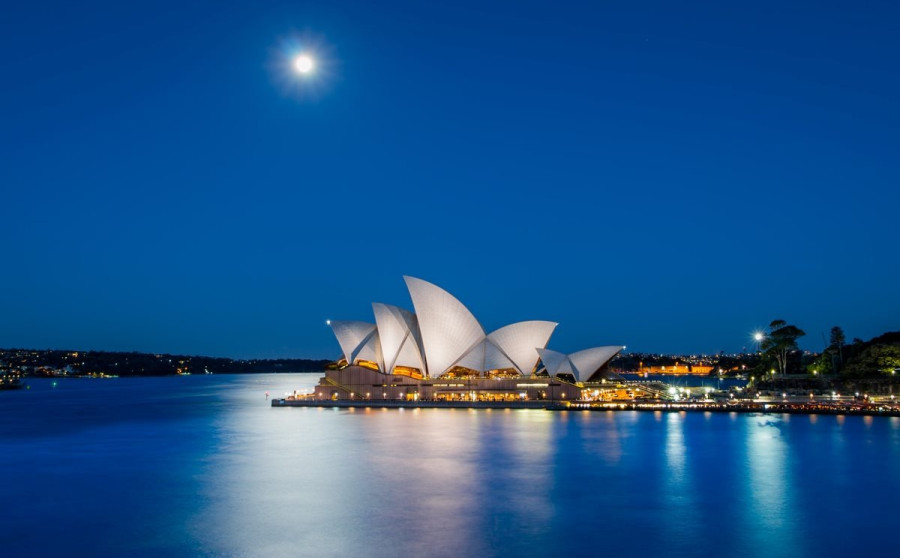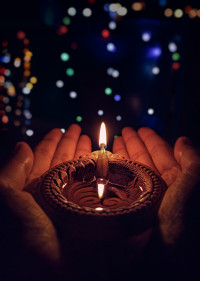As it is
The great divide of Sydney
In a city that contains more chaos than calm, it is here in the Western Suburbs that we feel most at peace.
Shuvekshya Limbu
February in Sydney is a hot brooding month. The air rises like a sauna’s hot steam, clouding your vision as perspiring men and women walk past you in a heady smell of cheap perfume and deodorant. As the temperature reaches 35 degrees, our small cheap apartment in western Sydney feels like a death chamber, and we resort to sleeping on the kitchen’s floor tiles to cool our baked bodies. Nepalis often joke that the only respite from the summer heat is either the trains or the Westfield, where many visit daily to shop for groceries. Yet the West is like the heat dump of the entire Sydney, where people cannot afford air conditioners and are too concerned about the rise in the electricity bill. The roads lie like a mating pit of shameless mosquitoes and flies as they descend on discarded furniture and soiled mattresses on the side of the roads.
It’s the summer of 2020 and the many dais I work with complain daily about having to work the fryer and ovens in the blistering heat. Their sweat-drenched hands prepare a hundred medium rare steaks and shoestring fries; some steaks get returned as they are not quite medium rare to someone’s liking. They mouth a Nepali slur or two and hand a fresh plate of steak on the pass for me to run. I return to the disgruntled customers with a new plate of steak with a side of my sweet apology, and ask if there’s anything else I can get for them. So much for customer service skills.
Yet when it’s 10 pm and time to go home after a strenuous 10-hour shift, we always board the same train that takes us to the West—away from the Harbor Bridge, Opera House, the blue beaches, and the glittering city that somehow compensates for the sweat, inequality, and the grotesque nature of what it feels like to earn a living in someone else's country. If one is to experience what Sydney life is really like in its unglamorous truth, one needs to only board the night train to the West. The blue seats of the train hold one slumped migrant worker after another, mostly Nepalis; some take a tired nap leaning on the windows and some talk to their families on their phone. The ones on the other side of the phone remain ignorant about the alienation that comes with earning foreign dollars. The calls are sometimes interrupted by a loud and drunk group of 18-year-olds, who only go as far as Newtown because the West is either too dirty, dangerous or only compensates as an accessible place to buy recreational weed in the suburb of Granville.
Yet in a city that contains more chaos than calm, it is here in the Western Suburbs that we feel most at peace. The suburbs of North shore where rich white people walk their groomed poodles in the evenings look down on the West like some Greek God passing an unforgivable sentence of fate, of race and of not being the ones to arrive in this country first.
Consider the West like a fortress of immigrants—its streets lined with the smell of kebabs and tandoori if you go through Harris Park or Merrylands; the languid commotion of the boisterous Middle Eastern men who drive Mercedes without its silencers and wear Gucci with a fanny pack that holds a stack of cash. They are popularly termed as ‘eshays’- a derogatory word that somehow substitutes new money with that of ostentation. In Auburn, you feel like you are in some corner of Nepal that has been hastily patched in the fabric of Sydney. The area boasts signature momo places, Nepali grocery shops, and it is common for youths to stand in a corner drinking tea and discussing the vagrant normality of everyday life. Harris Park isn’t much different, chances are you will pass by a golden Honda blasting a hit Punjabi song from its speakers.
It feels like if you can’t find a home in a foreign country, you somehow find ways to build it. Even if sometimes it means building it out of all the scraps that have been left behind by the powerful as they retreat to the picturesque beaches of the North.
The truth is, there is a great divide in Sydney—a divide marked by limited opportunities, casual racism, and prejudice. Maybe that is why we think a hundred times before calling in sick to work—we are easily replaceable. One tiny error and our shifts could be cut down and we could end up in the bottom of the feeding line. A personal joke; no money, no food. Yet we work the hardest in the room. We are the ones who persevere despite always being ‘the other’ who come from the sweltering sweat-drenched Western Sydney.




 15.12°C Kathmandu
15.12°C Kathmandu










